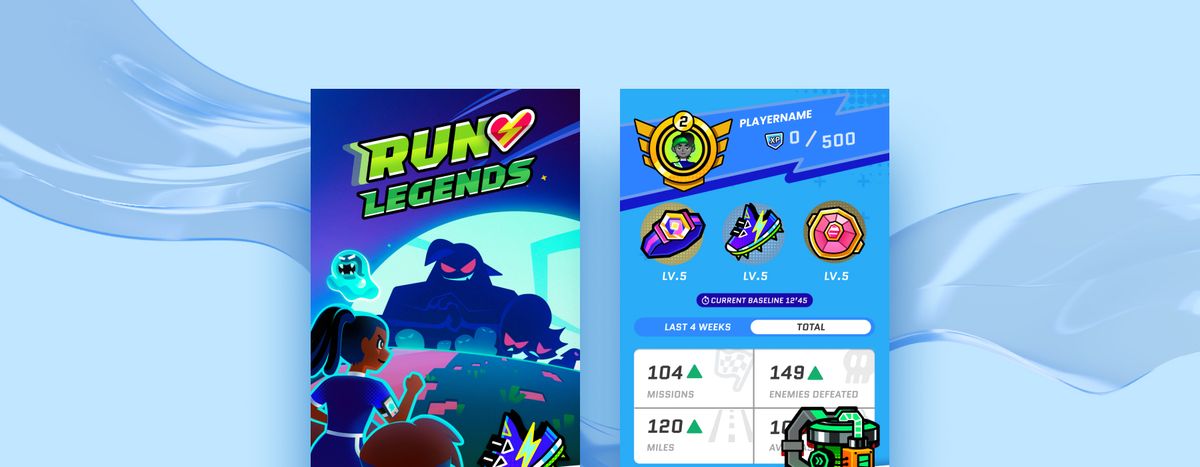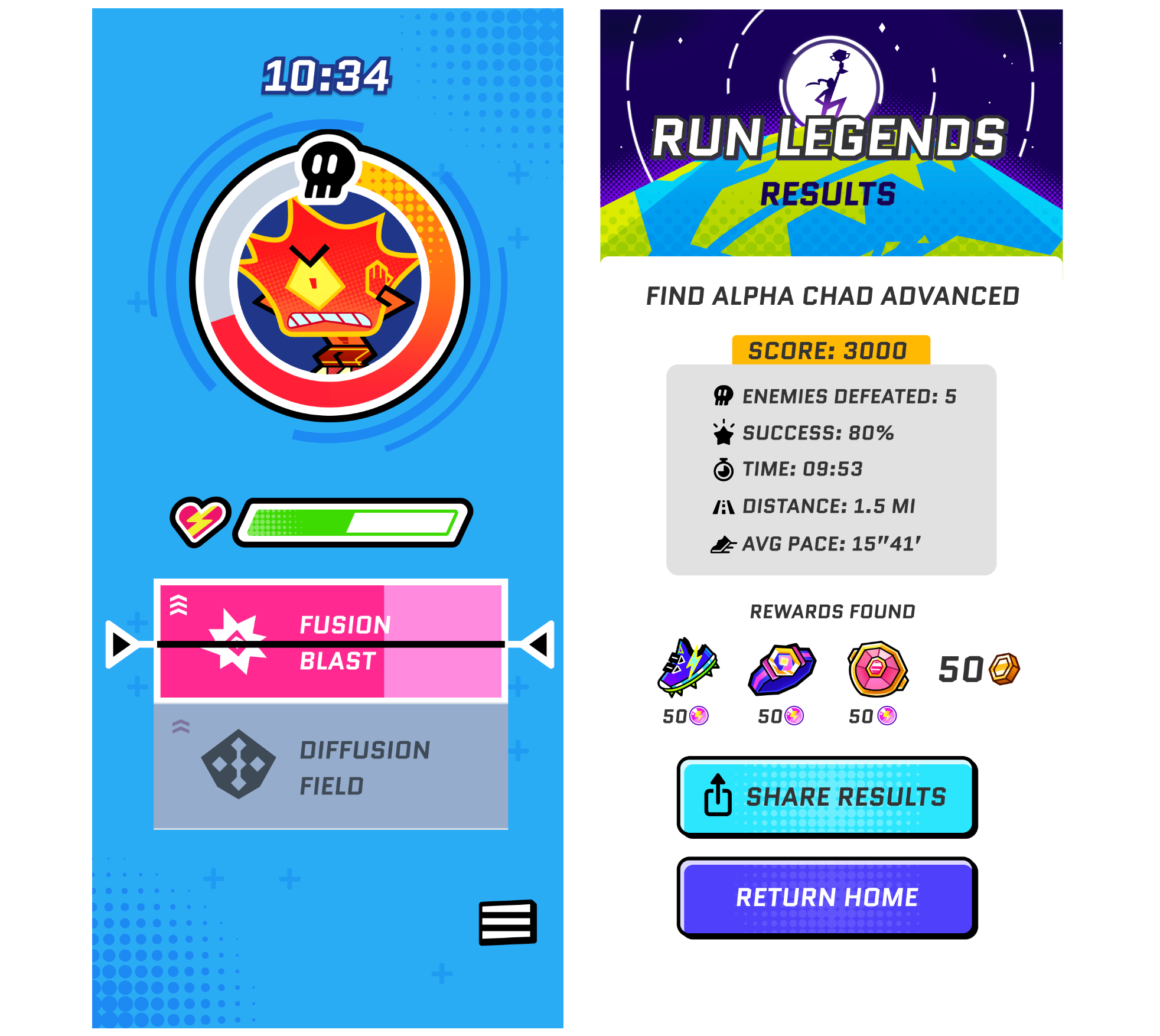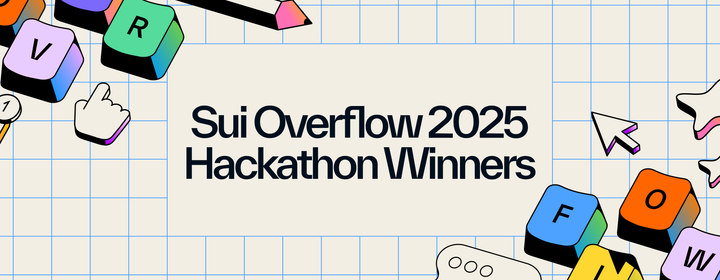Run Legends Uses Gamification to Get You Fit
Jenny Xu, founder of Talofa Games, married her love of running with her love of games to help people enjoy working out

We recently had the opportunity to talk about game development with Jenny Xu, CEO and founder of Talofa Games, the studio behind the fitness game, Run Legends. With over one hundred games under her belt, she is no stranger to pushing the boundaries of what a game can be, and she has brought her inventiveness and storytelling prowess to her favorite sport, running. Hear about how she developed the concept behind Run Legends, her experience integrating digital assets on Sui into her game, and why she believes the mix of Web2 and Web3 can be a recipe for success.
How did you get into gaming? What led you to build Run Legends?
I started building games when I was 12. I loved art and I loved drawing my favorite Pokemon, and that inspired me to make a bunch of fan games. I learned how to code because of games. From a very young age, I wanted to do game development. I put out about 100 games before I went to college, and out of those 100, I put about ten on the App Store, six of which did well. They got over 10 million downloads and helped pay for my college tuition. So that was a moment where I thought, wow, this is an actual career.
I went to MIT to study computer science and also got recruited to the cross-country track and field team there. I was running a lot, like 70 miles a week. I had this love for fitness and game development. When I graduated early, there was a contest hosted by Niantic, the folks behind Pokemon GO that I entered with my dad. We were able to merge my favorite sport, running, with gaming and we ended up winning the whole thing. Then we worked on that prototype funded by Niantic for another year and a half. Eventually, we secured venture capital to produce the game we're working on now, Run Legends, which launched about six months ago. The game combines exercise with gaming, turning walking and running into a multiplayer RPG. People who play the game feel like they're not actually exercising but having fun, giving them extra motivation to go out and do something that they otherwise might not have done.

Were your earlier games also in the fitness genre or were you testing out a variety of game types?
Most of the games were in the horror genre. I made a lot of weird stuff. They were always experimental, things that pushed what a game could be, and played around with the definition of a game. That was exciting because it's fun to combine things I love. So I went from horror and games to, now, fitness and games.
In trying to push the idea of games forward, are you thinking more about storytelling or the tech? How did you conceive of this idea of redefining games?
I'd say both. For instance, I once made a horror game where a girl was trapped in your computer. You saw her and talked to her, and when you didn't want to talk to her anymore and hit the quit button, she got really sad. And she'd ask, Are you sure you want to quit? Breaking the fourth wall so when you finally quit, it opens a YouTube video, indicating you might have closed the game client but now I've put myself into YouTube. Fun meta stuff like that. It was really exciting. That was tech plus storytelling. By nature, I’m a writer. Not a great one. But I like thinking about worlds and why characters behave as they do.
Is story a prominent part of Run Legends?
Run Legends is an interactive audio game. While you're walking and running, you're hearing a story unfold. It has the most dynamic story engine out of any game I've made because it narrates your fitness. It's got to be dynamic. It's got to be encouraging. I had to determine how to automate a coach walking somebody through a workout thousands of times. That was a really fun challenge, making a repeatable story and wrapping it around exercise.
You started making Run Legends during COVID, correct?
Late 2021 to 2022 was really when Run Legends was fully forming. It was perfect timing because a lot of the world was thinking about how they needed to exercise more. How health is important. There was a new boom of running, and lots more people going outside, trying to work out when the gyms were closed.
How was the game originally conceptualized, both in story and in tech?
Run Legends is a battle game. You fight monsters in fun battles that are comedic in nature. When you go fast, you can trigger certain skills, so maybe dealing damage, and then when you go slow, you can trigger another skill such as healing your team and also doing some damage. Players choose to go fast or slow in real life which controls the gameplay, and that makes them think less about the exercise and more about playing a video game they love.
On the technical side, there was a lot to figure out. How do we detect real-time speed pace changes? How do we ensure people have a seamless experience in outdoor settings where their data connection might be unstable? How do we recover when their connection completely drops out? And how do we keep people from running into trees? All of these challenges forced us to think outside of what game designers usually think about.

How did you decide to use blockchain as part of your tech stack? Was it always part of the plan for the game?
It wasn’t initially part of the plan when we made the game. At the time we started building, 2021 and 2022, there were a lot of games in the fitness space that we're taking off in terms of usage, motivation, and people’s success stories. We started thinking about how to give people extra motivation to go outside beyond the game itself. An extrinsic motivation could be giving people money, which some apps do. But then you can also give people digital assets that can be equally as motivating.
That model works well with fitness, as it's a space where people inherently think of exercise as something they don't want to do. There's long been a monetary component tied to fitness, such as betting with friends, registering for expensive races, or getting money from insurance for going to the gym. We decided to learn a little bit more about blockchain in 2022, and are still learning now because it seemed like a really good fit for the type of game we're making. As we started looking into it, we met folks associated with Sui and learned they had a lot of the same ideas as us about how the future of gaming was blockchain.
How do you incorporate blockchain features into Run Legends?
Our game is Web2-focused in the sense that somebody playing doesn't realize that it has anything to do with blockchain. It's optional for players to understand that part of it. But if they care about it, they get free items in the game that can be exported and traded with others. Items in our game are characters you play. So if you're into long-distance running, maybe a certain character is best for you, but if you're not into that, you can give it to someone else. Everyone has a different style of fitness so inherently there's some value in trading.
Right now we're doing the Bullshark Quest 3. Every time a player defeats an enemy, there's an on-chain transaction to upgrade the gear or the character that killed that enemy. It’s a fun but small challenge to see how strong a player’s character can get over time. And we're letting people trade those characters after the event is over. It’s cool seeing how characters can accrue power through endgame activity.
We’re using pretty basic things for now. We use sponsored transactions through Shinami so players don't have to pay any gas while playing. I like that a lot. As somebody who comes more from the gaming world, one of the biggest pain points of blockchain gaming is the moment you're asked to create a wallet, sign a transaction, or pay fees without understanding why. Having experiences where the game surprises you with a reward is what we're going for. We hope to use dynamic attributes in the future. We kind of use it through the level-up system, but not as much as we're planning.
How do you think Run Legends compares to games that don't incorporate the engagement aspects enabled by blockchain? Is your community having a positive reaction to the digital assets rewards? Can you tell if it incentivizes continued use of your game?
A lot of our most passionate players are people we found in the Sui community who love the way this game is developing. How there's a gradual ramp of more and more things we can do with Sui. And I think for players that aren't as familiar with it, they've mentioned how pleasantly surprised they are with our integration of blockchain, and that it’s not being forced on them if they don't want it. In that sense, both sides have felt very positive, which to us is a win, because we didn't want to alienate anyone. We’re glad to have that slow on-ramp, allowing us to really listen to player feedback, monitor how people are playing, and cut out bad actors early on. It's been really good for us to have this learning process. And players notice. They mention how our dev team is always available to chat and we're friendly. I'm proud of our team in that aspect.
You're involved in mentoring other game developers. How do you approach the mentorship process?
I have gotten mentorship from a lot of people in the industry so I give back by sharing my experience openly. At conferences like GDC or DICE, I’ll meet both mentors and mentees. I'm definitely in the phase where I take more than I give, but I do love to help. Having run a VC-backed startup, it's nice to share that experience and tell others what helped us when we were raising. I can talk about some of the challenges we had launching with a blockchain aspect and some of the upsides to doing that.
I think people relate a lot more to stories. So when they see that I’m a relatable person, they think, I could also get into this. Or they've heard so many bad things about the industry and then I tell them my experience, and they think, maybe I should give this another try.
What are your thoughts on the evolution of physical-digital games like Run Legends?
The fitness category of games is still pretty narrow. Its roots started a while ago. Pokémon GO and Zombies Run are some of our biggest inspirations and they've been around for about 10 years at this point. The category isn’t new, but there is not as much activity as in, say, shooter games. Fitness games kind of fall into the education game space, where it's something that somebody doesn't want to do and you're trying to get them to do it. The gamification industry is getting better and better every year because more and more people are playing games. Gen Z is a generation of 87 percent gamers. I think because of that, every year more people are trying out things that resemble games. And if the games are trying to get them to do something good, like work out, there's a way higher chance of people trying that these days than 10 years ago. That gives me a lot of hope for games like ours. And obviously, new tech makes it more accurate. There are way more hardware products that can track your heart rate, speed, and other physical metrics. So it's a very exciting time. I think we'll see a lot more of this stuff in the future.
Speaking of the future, what should we expect to see next with Run Legends?
There's a pretty big feature coming in the next month or so, where we're going to have a pretty cool progressive map system. And we have a cool trailer coming out soon as well. We're excited about that. The last piece is just more exercise types and more accessibility, being able to make Run Legends a game that everyone plays every day, whether it's to get their walk, their run, or some other sort of wellness. We're testing and experimenting with that as a way to get more users to try it out. So look out for new game features, new exercise types, and a new shiny trailer!



